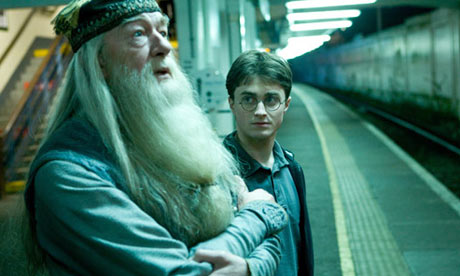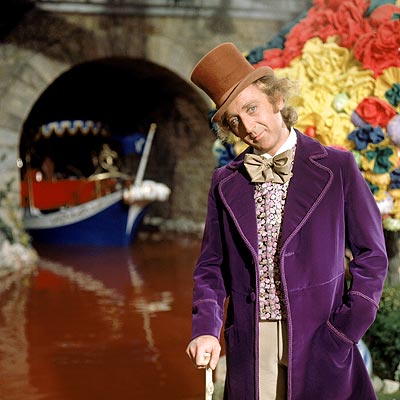 Lenny and AMD.
Lenny and AMD.
After a 4th viewing, I finally came into terms on how great a psycho noir film "Memento" really is. Its lonely and constantly manipulated protagonist Leonard Shelby (played by the very underrated Guy Pearce), who is out there in the open searching for the man who raped and murdered his wife, isn't the only one that goes with the wave of the film's conflicted theme of revenge, deceit and selective thinking, but also us. 'This' character helps Leonard and 'that' character aids him, but can they really be trusted? "Memento" is indeed a film that gives its ultimate revelation in the end (which is also supposedly the chronological beginning of the film's colored sequences) just like any other mystery films, but what elevates the film above other movies of its kind is its unique view of its characters' reliability. Do they really speak of the truth?
The film plays like a crooked little jigsaw puzzle game and we, the audience and Leonard, are the clueless arrangers. Or is it like a tight-strung political conspiracy and we are the Woodwards and Bernsteins? "Memento" is truly successful in its layered exploration of the barren landscapes of a short term memory disorder-inflicted mind that visually simulates this through the film's reverse chronology. Christopher Nolan, who directed the film with both the limitless consciousness of a daring independent director and the depth of a human dramatist, fragments the film with subtle linkages that makes the film all the more urgent in its presentation. It's purely involving yet it never spoon-feeds plot devices and narrative necessities.
"Memento" merely plays like a confused sleuth who constantly goes around places until its confusion turns into a foggy clarity. As evident in its pattern alone, it stands as a film that was never really created to answer its own teetering questions. It probes into the deepest and treads the slightest yet the next thing you may know, it unravels on its own. Here is an exceptional mystery film that is more concerned with its protagonist's internal catharsis than the audience's plot satisfaction.
Here we do not have a hero but a mere vengeful soul. He wants answers but so do we. "Memento" hands out its clever twists and turns just like any other cinematic exercises in doing so but does not have the courtesy to give a parenthetical period. It's a fourth wall cerebral involvement and I'm more than happy to join in.
I hate films which open up a lot of doors yet don't have enough capacity to close them afterwards. "Memento" is different. It's meticulously written to the point that I have even imagined Christopher Nolan and his brother Jonathan drawing out diagrams for the film's numerous probabilities. We're very much aware of their skillful ability to answer the film's many questions with stoic narrative certainties, but they chose not to.
Like people with Anterograde Amnesia ourselves, Nolan is our few-worded storyteller that tells us an unforgettable tale of desire and the search for human closure but does not consider the necessity to leave us a pen so that we wouldn't forget. But as I like to call it, it's 'living in the moment and in it alone'.
Aside from a rich, 'blink and you'll miss it'-type of story, the film is also filled with splendid performances by former "Matrix" colleagues Carrie-Anne Moss and Joe Pantoliano. He (Pantoliano) embodies our common view of an unreliable handler of truth. Do the words he says comfort or distort?
"Memento" grabs us audience in its engrossing clutches but then leads us astray to each our own as the film ends. Some may find Teddy as a legitimate guide, some may consider Sammy Jankis nothing but a tarnished flashback, but again, to each our own. "Memento" surely polarizes in-depth views and what-if analyses among its viewers, but as a film that brilliantly shows the mystery of motives and the flaws of human relationships, it concentrates its audience into a common agreement that it is indeed one of the first great films of the new millennium.
First viewing, I thought it was confusing as hell. Second, I thought it was good but still confusing as all hell. Third, I thought it's not as confusing as how I initially thought it was but still wasn't as great as how everyone thinks it is. This is my fourth viewing and the rating speaks for itself. It's not 'confusion' that bothers me anymore but its characters' (particularly Teddy's) 'reliability' and the liability of Leonard's tattered memories; two doors worth finding the keys for.
The film plays like a crooked little jigsaw puzzle game and we, the audience and Leonard, are the clueless arrangers. Or is it like a tight-strung political conspiracy and we are the Woodwards and Bernsteins? "Memento" is truly successful in its layered exploration of the barren landscapes of a short term memory disorder-inflicted mind that visually simulates this through the film's reverse chronology. Christopher Nolan, who directed the film with both the limitless consciousness of a daring independent director and the depth of a human dramatist, fragments the film with subtle linkages that makes the film all the more urgent in its presentation. It's purely involving yet it never spoon-feeds plot devices and narrative necessities.
"Memento" merely plays like a confused sleuth who constantly goes around places until its confusion turns into a foggy clarity. As evident in its pattern alone, it stands as a film that was never really created to answer its own teetering questions. It probes into the deepest and treads the slightest yet the next thing you may know, it unravels on its own. Here is an exceptional mystery film that is more concerned with its protagonist's internal catharsis than the audience's plot satisfaction.
Here we do not have a hero but a mere vengeful soul. He wants answers but so do we. "Memento" hands out its clever twists and turns just like any other cinematic exercises in doing so but does not have the courtesy to give a parenthetical period. It's a fourth wall cerebral involvement and I'm more than happy to join in.
I hate films which open up a lot of doors yet don't have enough capacity to close them afterwards. "Memento" is different. It's meticulously written to the point that I have even imagined Christopher Nolan and his brother Jonathan drawing out diagrams for the film's numerous probabilities. We're very much aware of their skillful ability to answer the film's many questions with stoic narrative certainties, but they chose not to.
Like people with Anterograde Amnesia ourselves, Nolan is our few-worded storyteller that tells us an unforgettable tale of desire and the search for human closure but does not consider the necessity to leave us a pen so that we wouldn't forget. But as I like to call it, it's 'living in the moment and in it alone'.
Aside from a rich, 'blink and you'll miss it'-type of story, the film is also filled with splendid performances by former "Matrix" colleagues Carrie-Anne Moss and Joe Pantoliano. He (Pantoliano) embodies our common view of an unreliable handler of truth. Do the words he says comfort or distort?
"Memento" grabs us audience in its engrossing clutches but then leads us astray to each our own as the film ends. Some may find Teddy as a legitimate guide, some may consider Sammy Jankis nothing but a tarnished flashback, but again, to each our own. "Memento" surely polarizes in-depth views and what-if analyses among its viewers, but as a film that brilliantly shows the mystery of motives and the flaws of human relationships, it concentrates its audience into a common agreement that it is indeed one of the first great films of the new millennium.
First viewing, I thought it was confusing as hell. Second, I thought it was good but still confusing as all hell. Third, I thought it's not as confusing as how I initially thought it was but still wasn't as great as how everyone thinks it is. This is my fourth viewing and the rating speaks for itself. It's not 'confusion' that bothers me anymore but its characters' (particularly Teddy's) 'reliability' and the liability of Leonard's tattered memories; two doors worth finding the keys for.

















